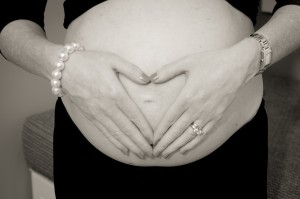 Sustainable Health Acupuncture is a fully functional fertility clinic and works with both men and women to address the causes of infertility. All too often, the woman is the only person being treated, but male factor issues account for 35-40% of infertility issues. Female issues are responsible for another 35-40%, and the remaining 20-30% is due to a combination of both.
Sustainable Health Acupuncture is a fully functional fertility clinic and works with both men and women to address the causes of infertility. All too often, the woman is the only person being treated, but male factor issues account for 35-40% of infertility issues. Female issues are responsible for another 35-40%, and the remaining 20-30% is due to a combination of both.
Many people don’t yet realize that Chinese Medicine addresses infertility. But the earliest historical reference to Chinese Medicine’s treatment of infertility dates back 2000 years, appearing in Zhang Zhong Jing’s classic text The Essentials of the Golden Coffer (Jin Gui Yao Lue).
Chinese Medicine has been shown to:
- Improve blood flow to the uterus and ovaries.
- Improve sperm quality (count and motility).
- Improve egg quality.
- Regulate the menstrual cycle.
- Treat fibroids and endometriosis.
- Improve IVF success rates by over 50%, from 26.3% to 42.5%.
- Regulate the hypothalamic-pituitary-ovarian axis and regulate the endocrine system.
- Decrease the chance of a miscarriage, and improve live birth rate.
- Alleviate stress.
Certain medical conditions may predispose you to impaired fertility.
Female Conditions:
- Endometriosis refers to the growth of uterine tissue in areas outside of the uterus. This tissue may cause adhesions, which prevent the normal functioning of the ovaries and fallopian tubes.
- Fibroids are benign tumors occurring in the uterine wall, and may interfere with implantation.
- Polycystic ovarian syndrome (PCOS) in which the body produces too much androgens (male hormones), blocking ovulation.
- Hyperprolactinemia (elevated prolactin levels) due to a benign pituitary tumor, side effects of medication, thyroid issues, or stress. Elevated prolactin levels can block ovulation.
- Premature ovarian failure (POF) refers to the absence of menstruation and ovulation in a woman under 40. It may also refer to a low follicle count in the same demographic.
- Luteal phase defect occurs when the ovaries don’t produce enough progesterone post-ovulation. Progesterone plays a key role in preparing the uterine lining for the fertilized egg.
- Damaged or blocked fallopian tubes, due to untreated Chlamydia or gonorrhea, uterine infection, previous ectopic pregnancy, prior abdominal or tubal surgery, or endometriosis. If both fallopian tubes are blocked, the egg cannot reach the uterus, and the sperm cannot reach the egg, preventing fertilization and pregnancy.
- Thyroid issues, either hypothyroid or hyperthyroid, can affect the menstrual cycle, and therefore affect fertility.
- Being overweight or underweight can affect the function and production of the hormones necessary for ovulation.
- Excessive exercise can stop ovulation and menstruation.
Male Conditions:
There are a multitude of things that can affect sperm count, motility (movement of sperm), and morphology (shape of the sperm).
- Smoking has been shown to significantly reduce sperm count and impair motility. Furthermore, a recent study shows that children born to fathers who smoke have increased risk of childhood acute lymphoblastic leukemia (ALL).
- Marijuana or other recreational drugs use.
- Regular alcohol abuse.
- Excessive exercise puts you in fight-or-flight mode, increasing adrenal hormones and decreasing testosterone.
- Tight underwear and extreme bike-riding increase scrotal temperature, and sperm’s optima; temperature is cooler than the rest of the body.
- Hot tubs and saunas also increase scrotal temperature.
- Excessive ejaculation or prolonged abstinence affect both count and morphology.
- Steroid use causes testicular shrinking.
- Inadequate antioxidants in the diet, which are essential for sperm production (i.e. sperm count).
- Toxin exposure (heavy metals, pesticides, radiation, etc.) affects sperm DNA
- Poor diet.
- Excessive stress can lead to reduced count and motility, and to erectile dysfunction and premature ejaculation.
- Physical problems, such as varicocele, damaged sperm ducts, and torsion, can interfere with sperm production or with the pathway of sperm.
- Hormonal problems, including thyroid issues, pituitary gland failure, and hyperprolactinemia, can impair male fertility.
I am happy to partner with you whether you are trying to conceive naturally, or with the help of IVF, IUI, or another form of ART (assisted reproductive technology). I fully support your body, mind, and spirit along whatever path you choose to build a family.
